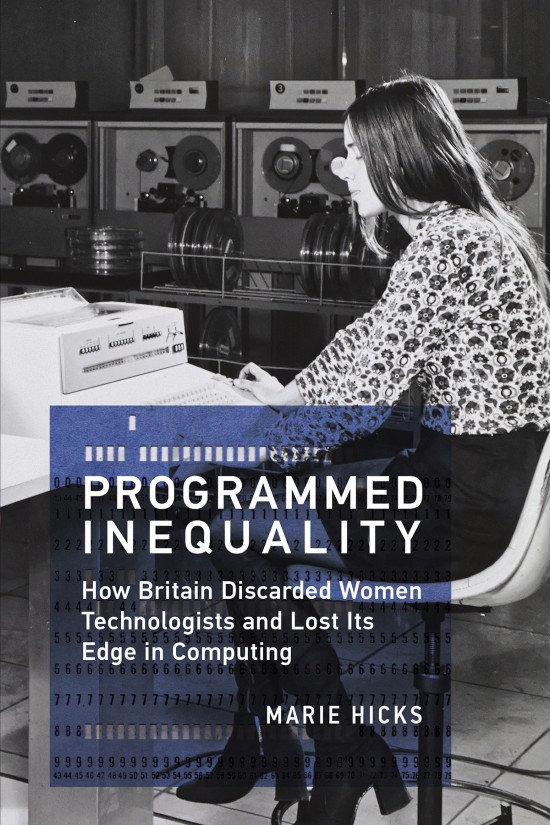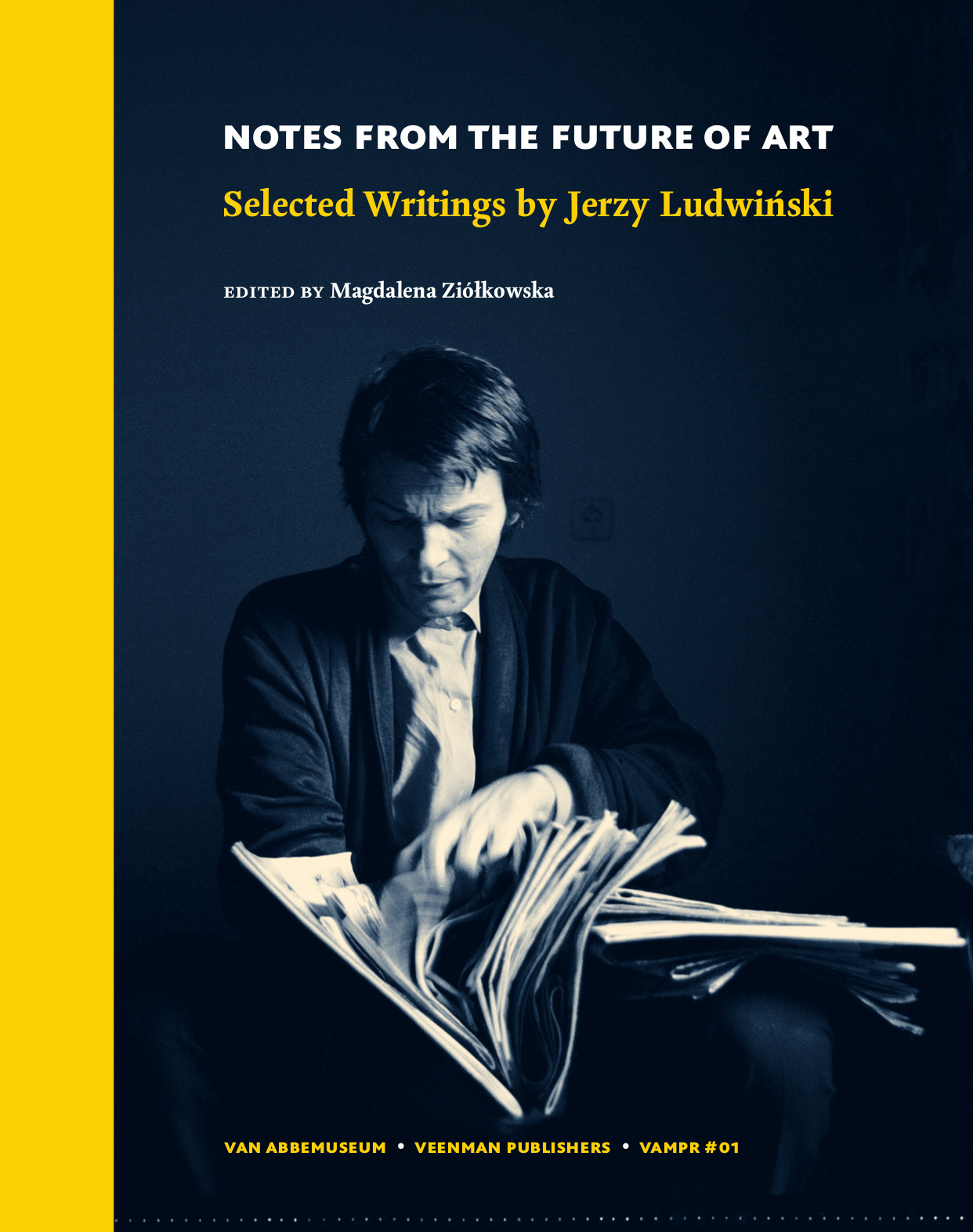Marie Hicks: Programmed Inequality: How Britain Discarded Women Technologists and Lost Its Edge in Computing (2017)
Filed under book | Tags: · computing, history of computing, history of technology, technology, united kingdom, women

“How Britain lost its early dominance in computing by systematically discriminating against its most qualified workers: women.
In 1944, Britain led the world in electronic computing. By 1974, the British computer industry was all but extinct. What happened in the intervening thirty years holds lessons for all postindustrial superpowers. As Britain struggled to use technology to retain its global power, the nation’s inability to manage its technical labor force hobbled its transition into the information age.
In Programmed Inequality, Marie Hicks explores the story of labor feminization and gendered technocracy that undercut British efforts to computerize. That failure sprang from the government’s systematic neglect of its largest trained technical workforce simply because they were women. Women were a hidden engine of growth in high technology from World War II to the 1960s. As computing experienced a gender flip, becoming male-identified in the 1960s and 1970s, labor problems grew into structural ones and gender discrimination caused the nation’s largest computer user—the civil service and sprawling public sector—to make decisions that were disastrous for the British computer industry and the nation as a whole.
Drawing on recently opened government files, personal interviews, and the archives of major British computer companies, Programmed Inequality takes aim at the fiction of technological meritocracy. Hicks explains why, even today, possessing technical skill is not enough to ensure that women will rise to the top in science and technology fields. Programmed Inequality shows how the disappearance of women from the field had grave macroeconomic consequences for Britain, and why the United States risks repeating those errors in the twenty-first century.”
Publisher MIT Press, 2017
ISBN 9780262035545, 0262035545
x+342 pages
Reviews: Ksenia Tatarchenko (British Journal for the History of Science, 2017), Janet Abbate (IEEE Annals of the History of Computing, 2017), Lianne Gutcher (The National, 2017), Dominic Lenton (E&T, 2018), John Gilbey (Times Higher Education), Christophe J. Phillips (Isis, 2018), Mark J. Crowley (History, 2018), Megan Finn (Information & Culture, 2018).
HTML, PDF (removed on 2018-10-26 upon request from publisher)
Comment (0)Jerzy Ludwiński: Notes from the Future of Art: Selected Writings (2007)
Filed under book | Tags: · art criticism, art history

“This book is the first collection of texts by Jerzy Ludwiński (1930-2000) published in English. Ludwiński was an art historian, critic, curator, founder of the Mona Lisa Gallery and professor in the Academy of Fine Arts. He fulfilled those functions on the peripheries of the state system of his time, activating, in turn, the cultural circles in Lublin, Wrocław, Toruń and Poznań. Within the frames of artistic life established by the authorities of the People’s Republic of Poland, he marked out his own ‘playing field’, where such notions as ‘critic’, ‘curator’, ‘gallery’ and ‘museum’ underwent significant transformation. The models of cultural institutions, created by Ludwiński at the end of the 1960s – Museum of Current Art, Mona Lisa Gallery and Centre for Artistic Research – became not only the places of a particular reflection on art, but also an institutional shelter for the first manifestations of conceptual art in Poland.”
Edited by Magdalena Ziółkowska
Publisher Van Abbemuseum, Eindhoven, and Veenman Publishers, Rotterdam, 2007
VAMPR series, 1
ISBN 9789070149949, 9070149949
239 pages
via editor
Review: Piotr Słodkowski (ArtMargins, 2012).
PDF (8 MB)
Academia.edu
Andrea Andersson (ed.): Postscript: Writing After Conceptual Art (2018)
Filed under book | Tags: · conceptual art, conceptual writing, literary criticism, literature, poetry

“One of the most important movements in twenty-first century literature is the emergence of conceptual writing. By knowingly drawing on the histories of art and literature, conceptual writing upended traditional categorical conventions.
Postscript is the first collection of writings on the subject of conceptual writing by a diverse field of scholars in the realms of art, literature, media, as well as the artists themselves. Using new and old technology, and textual and visual modes including appropriation, transcription, translation, redaction, and repetition, the contributors actively challenge the existing scholarship on conceptual art. Rather than segregating the work of visual artists from that of writers we are shown the ways in which conceptual art is, and remains, a mutually supportive interaction between the arts.”
Publisher University of Toronto Press, 2018
ISBN 1442649844, 9781442649842
xii+416 pages
PDF (26 MB)
Comment (0)
